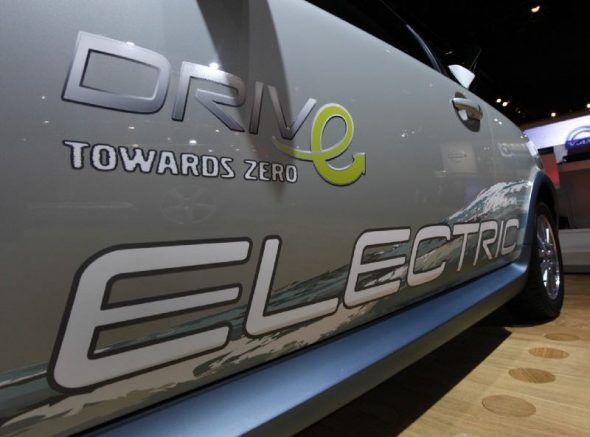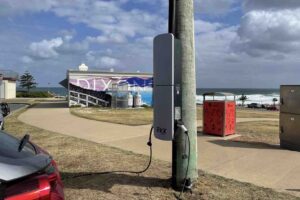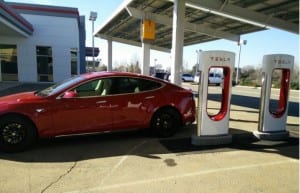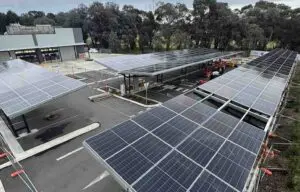Swedish auto company Volvo announced Wednesday that all of the new cars it produces will be either all-electric or hybrid by 2019.

“This is about the customer,” Håkan Samuelsson, president and CEO of Volvo said in a statement. “People increasingly demand electrified cars, and we want to respond to our customers’ current and future needs.”
The transition to electric is going even faster than the car maker anticipated just last year, when it announced that all its new cars would be available in a hybrid version.
Its original pledge was to offer its first all-electric car by 2019. Now, the company expects to have five electric vehicles (EVs) on the market by 2021.
“We are convinced that the future of Volvo is electric,” Samuelsson said in a video ad marking the announcement.
The video says the announcement marks “the end of an era for the pure internal combustion engine.”
Volvo’s current slate of hybrid vehicles is selling well. According to the Guardian, Volvo expected 5 to 10 percent of sales for its crossover SUV to be hybrid.
Last year, the hybrid version accounted for a quarter of the model’s sales.
“It’s indicative of the speeding up of the shift over to electrics, particularly in the wake of the VW dieselgate scandal, and it’s a sign that the industry is really starting to move and it will become mainstream,” Professor David Bailey, an automotive expert at Aston University, told the Guardian.
“By the mid-2020s, I expect there to be a tipping point where the electric car starts to out-compete the internal combustion engine.”
Moving from conventionally powered cars to electric cars is critical to achieving carbon emissions reductions.
In the United States, emissions from electricity — historically the largest source of greenhouse gas emissions — have fallen in recent years, as natural gas, solar, and wind have replaced coal as sources of power generation.
Meanwhile, more and more cars are hitting the road. Last year, the transportation sector surpassed electricity as the largest source of emissions stateside.
While EV and hybrid cars often have a higher sticker price, analysis from Navigant Research and BNEF finds that EVs actually have a lower lifetime cost than conventional combustion engines, even when gas prices are low.
The rise of EVs in the United States — think Tesla — was driven by early investments in research by the Department of Energy, which helped develop the technology used for modern batteries, as well as a DOE loan program.
Under former President Barack Obama, the United States committed to an EV charging corridor and other infrastructure improvements to facilitate the transition to clean cars.
That transition — and U.S. leadership in the EV market — is being jeopardized by President Donald Trump, some say.
Trump’s administration has announced it will roll back fuel standards proposed under the previous administration.
Trump’s people argue that the regulations are too costly — but forcing gas to be cleaner is one way to level the playing field for technologies that don’t drive the ever-worsening climate crisis.
China, on the other hand, has embarked on a huge push for electric vehicles.
Volkswagen brand chief Herbert Diess told Reuters his company is “convinced China will become the leading market for electromobility.”
Source: ThinkProgress. Reproduced with permission










